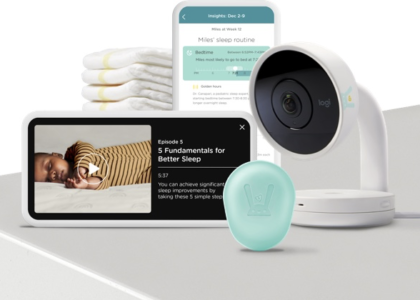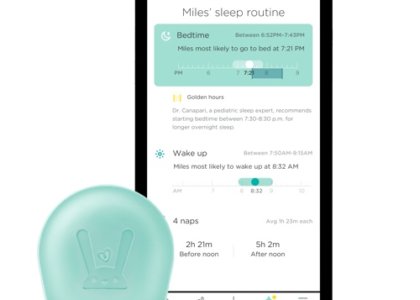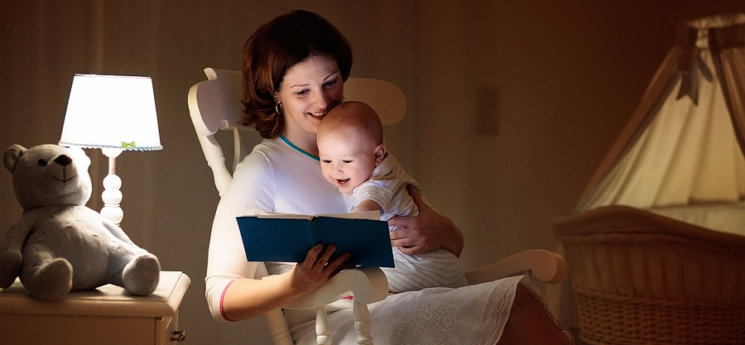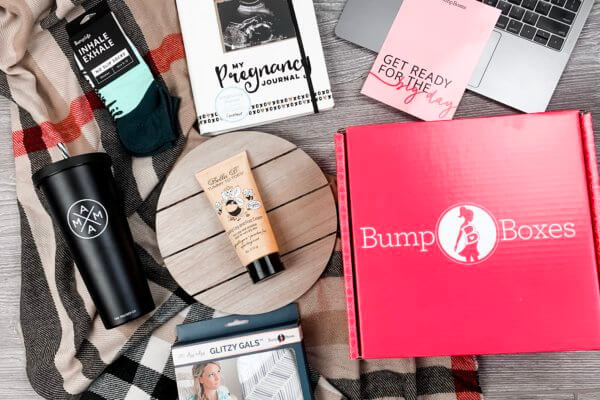One of the most challenging tasks for a new parent is developing a baby’s sleep schedule. Many new parents struggle to implement a consistent and healthy baby sleep and nap schedule. If you’re struggling to get your family’s sleep routine back to normal after the birth of a new little one, Lumi covers sleep courses from ages 0-16 months. Their 17 episodes are short, easy to follow and science-backed.
Here are some guidelines and tips for you to follow:
Sleep Needs By Age
As your family grows and changes, so will their sleep patterns. Follow these recommendations to get an idea of how much sleep your growing family needs.
Newborns (birth to 4 months)
Your newborn needs a lot of sleep. Healthcare professionals recommend at least 16-20 sleep per day with waking times of 1-2 hours between sleep periods.
Infants (4-12 months)
By 4 months, your newborn should be sleeping between 12-14 hours per day with a sleep/wake cycle that includes at least 6 hours of sleep during the night. You should also have a consistent baby nap and sleep schedule, aiming for 3 naps–morning, afternoon, and early evening.
Toddlers (1-2 years)
By the time you get to the first year, your toddler should be sleeping approximately 11-14 hours per day. A toddler needs a full night of sleep, plus a morning and afternoon nap.
Preschoolers (3-5 years)
Children from 3 years old to elementary school-age need at least 10 hours of sleep per day. A preschooler may only need one nap, usually in the afternoon.
You should also avoid naps longer than 3 hours. Sleeping in the late afternoon or early evening can cause some challenges at bedtime. An energetic toddler at 11 p.m. means no one in the house is getting any sleep.
Best Practices for Best Baby Sleep Patterns
To help your child get the most restful sleep, it is vital to foster a good sleep environment and help your child develop good sleep hygiene. Following some simple tips for your infant and toddler can establish healthy habits to ensure you and your child get the most out of your waking hours.
Try a Sleep Kit
If you have difficulty setting a baby nap and sleep schedule, the Lumi by Pampers Smart Sleep System can help you create one. The system includes a smart baby monitor and a sleep sensor.
 The Lumi by Pampers Smart Baby Monitor features 1080p HD resolution and streams crystal clear images of your baby to your phone. It also has 2-way audio with state-of-the-art encryption and reliable WiFi that allows you to soothe the baby from another room using the app.
The Lumi by Pampers Smart Baby Monitor features 1080p HD resolution and streams crystal clear images of your baby to your phone. It also has 2-way audio with state-of-the-art encryption and reliable WiFi that allows you to soothe the baby from another room using the app.
The app continues to work even when your phone is closed or if you’re using other apps so you can always hear and talk to your little one.
The Lumi by Pampers Smart Sleep System features pediatrician-developed virtual sleep coaching videos that offer advice and information on infant sleep from ages 0-16 months. These videos include information on safe sleep practices, sleep fundamentals, and effective sleep training methods. In addition to the sleep coaching videos, their smart sleep sensor will help you apply the courses to your baby’s specific needs. It’s personalized insights to baby’s sleep helps parents understand what’s happening auto-magically!
Feed Your Baby Before Bed
Ensure your baby is well fed before putting them to bed. A full-tummy can make a baby feel relaxed and drowsy. Always burp your baby before putting them down to sleep because air trapped in their stomach can cause reflux and be uncomfortable, keeping them awake at night.
Create a Safe, Cosy Sleep Environment
Your baby’s sleep/wake cycle is influenced by light and heat. Dim the lights in the house and in the baby’s room about half an hour before bed, and control the temperature of your home; the ideal sleeping temperature is between 60-67°F.
The Lumi by Pampers Smart Baby Monitor tracks the heat and humidity levels in the room, allowing you to make precise adjustments to the thermostat and create the perfect sleep environment.
Ensure your baby’s bed has a tight-fitting sheet, one blanket, and no extra pillows, bumpers, or stuffed toys. You should also avoid letting your baby sleep in the Rock-n-Play or bouncer for extended periods as the restraints pose a safety hazard.
Set a Sleep Routine
 Routines are essential for babies and children, making them feel safe, secure, and well-taken care of. Many new parents bathe their baby, read a story, or use other calming activities to get the baby into bedtime mode. Lumi comes with routine alarms to help you maintain a sleep routine.
Routines are essential for babies and children, making them feel safe, secure, and well-taken care of. Many new parents bathe their baby, read a story, or use other calming activities to get the baby into bedtime mode. Lumi comes with routine alarms to help you maintain a sleep routine.
Make Sure the Baby is Sleepy
Your baby should be drowsy, but not asleep before placing them in the crib. Finding that sweet spot helps the child learn how to fall asleep on their own.
Avoid the Bedtime Bottle
Many new parents find that letting the baby fall asleep with a bottle is easy and efficient. This may be true, but it can lead to sleep associations and habits that are difficult to break. It can confuse the baby’s hunger schedule, causing her to wake up feeling hungry in the middle of the night. Drinking too much before bed may mean more frequent wet diapers during the night and lead to painful diaper rashes.
Drinking while lying down can lead to ear infections and dental problems. If the baby cannot sleep without a bottle, try a gradual approach by offering it 5 minutes earlier every night until you can eliminate it from the bedtime routine.
Try Infant Massage
If you have a hard time getting your little one to sleep, a gentle massage as part of your nighttime routine creates a sense of relaxation and offers several health benefits. Infant massage helps promote bonding, cardiovascular health and enhances sleep. Because your infant’s cardio system is more delicate than adults, specific strokes and techniques, such as always stroking away from the heart, are suitable for use on a baby.
Avoid Screens
Screens can be a great way to relax toddlers and preschoolers after a long day, but too much screen exposure before bed can prevent restful sleep. The blue light from the screen inhibits melatonin production, keeping your child alert. The American Academy of Pediatrics (AAP) suggests closing all screens at least an hour before bed to avoid sleep disruption.
The Take-home Message
Sleep is vital to healthy families and healthy babies. To create healthy sleep habits, know how much sleep your child needs, create a nighttime routine, and follow good habits, so your children are ready to seize each day.




